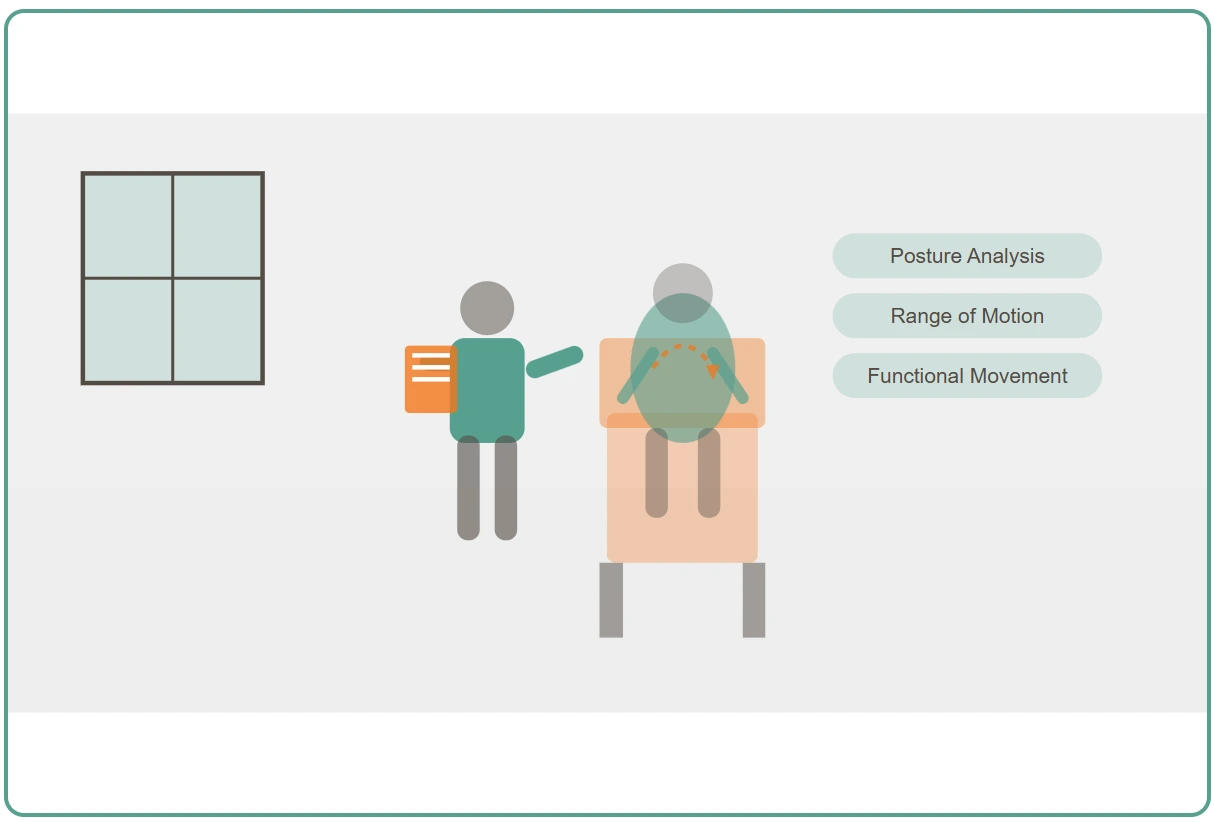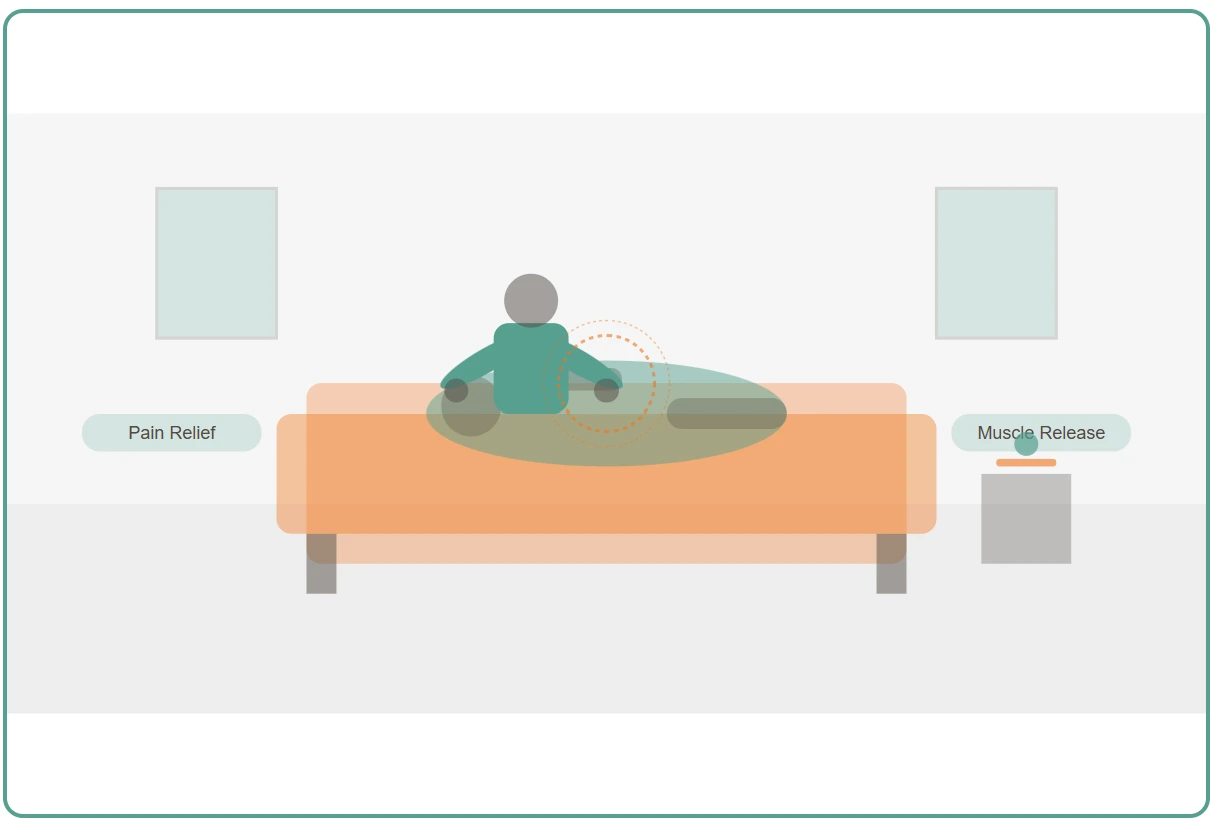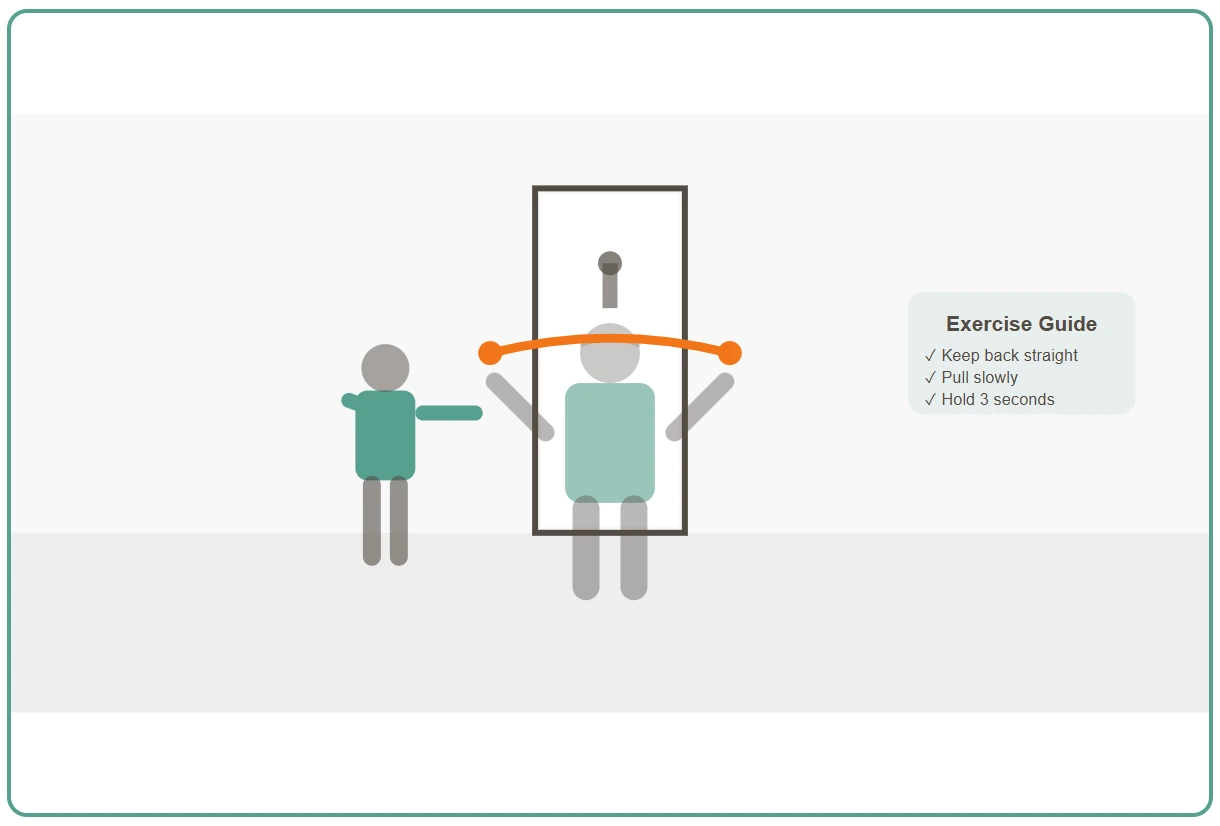Breaking the Chronic Pain Cycle: How Mobile Physiotherapy Provides Long-Term Relief

Physiotherapy for chronic pain has evolved beyond traditional clinic visits, bringing personalized treatment directly to your home where you’re most comfortable.
Living with persistent pain affects every aspect of your life, from simple daily tasks to maintaining independence, but mobile physiotherapy offers a revolutionary approach that addresses not just symptoms but the root causes of your discomfort.
Table of Contents
ToggleUnderstanding Chronic Pain: More Than Just Physical Discomfort
Chronic pain persists for more than three months and affects 1 in 5 Australians.
It’s not just about physical sensations; chronic pain rewires your nervous system, creating a complex cycle that traditional treatments often fail to break.
Key characteristics of chronic pain:
- Continues beyond normal healing time
- May exist without obvious injury
- Affects sleep, mood, and daily function
- Creates compensatory movement patterns
- Reduces quality of life significantly
The revolutionary aspect of mobile physiotherapy in Sydney, Brisbane, and the Gold Coast is how it addresses these multiple dimensions in your natural environment.
Why Traditional Pain Management Often Falls Short
Many people with chronic pain bounce between specialists without finding lasting relief.
Standard approaches typically focus on symptoms rather than underlying causes.
Common limitations include:
- Generic exercise programs
- Temporary medication relief
- Isolated treatment sessions
- Lack of home environment assessment
- Limited time with practitioners
“After years of clinic visits with minimal improvement, having my physiotherapist come to my home changed everything. They could see exactly how I moved in my daily life and tailored treatment to my actual needs.” – Margaret, 68, Brisbane
At-home physiotherapy transforms this approach by providing comprehensive, environment-specific care.
The Science Behind Mobile Physiotherapy’s Success
Mobile physiotherapy works because it addresses pain where it actually occurs: in your daily life.
Research shows that context-specific treatment produces better outcomes for chronic pain sufferers.
Your home environment provides crucial information about pain triggers and movement patterns that clinic visits miss.
Neuroplasticity and Pain Recovery
The brain’s ability to rewire itself is central to chronic pain recovery.
Mobile physiotherapists use this principle by:
- Creating positive movement experiences in familiar settings
- Reducing fear-avoidance behaviors through gradual exposure
- Building confidence with everyday tasks
- Establishing sustainable routines that stick
What is mobile physiotherapy explains how this approach differs fundamentally from traditional clinic-based care.
Comprehensive Assessment in Your Living Space

Mobile physiotherapists conduct thorough evaluations that clinic visits can’t match.
They observe how you:
- Navigate stairs and doorways
- Get in and out of chairs
- Perform kitchen tasks
- Manage bathroom activities
- Sleep positioning
This real-world assessment reveals hidden contributors to chronic pain.
Environmental Modifications for Pain Relief
Simple home adjustments can dramatically reduce pain:
Bedroom improvements:
- Optimal pillow height
- Mattress support assessment
- Bed height modifications
- Clear pathways for night movement
Living area adaptations:
- Chair height adjustments
- Proper lumbar support
- Strategic grab rail placement
- Improved lighting for safety
Personalized Treatment Plans That Actually Work
Every chronic pain journey is unique, requiring individualized approaches.
Mobile physiotherapy services include comprehensive treatment options tailored to your specific needs.
Core Treatment Components
Manual therapy techniques:
- Soft tissue mobilization
- Joint mobilization
- Trigger point release
- Myofascial release
Movement retraining:
- Posture correction
- Gait analysis and training
- Balance improvement
- Coordination exercises
Strength building:
- Progressive resistance training
- Core stabilization
- Functional strengthening
- Endurance development
Table: In-Clinic vs. Mobile Physiotherapy for Chronic Pain
Factor | Traditional Clinic | Mobile Physiotherapy |
|---|---|---|
Assessment Environment | Artificial clinical setting | Your actual living space |
Treatment Relevance | Generic exercises | Customized to your home |
Family Involvement | Limited or none | Full family education |
Equipment Used | Clinic equipment only | Your furniture and tools |
Convenience | Travel required | No travel stress |
Session Duration | Typically 30 minutes | Extended sessions available |
Follow-up Support | Between visits only | Ongoing home program |
Cost Effectiveness | Travel costs added | No additional transport expenses |
Breaking the Pain-Fear-Avoidance Cycle
Chronic pain creates a vicious cycle where fear of movement leads to more pain.
Mobile physiotherapists break this cycle through:
- Graded exposure to feared movements
- Confidence building in safe environments
- Education about pain mechanisms
- Stress reduction techniques
Physiotherapy for back problems demonstrates how this approach specifically helps the most common chronic pain condition.
Specialized Approaches for Different Populations
Seniors with Chronic Pain
Older adults face unique challenges with chronic pain management.
Why mobile physiotherapy is ideal for elderly clients in Brisbane and other areas shows how home-based care addresses:
- Arthritis management
- Post-surgical recovery
- Fall prevention
- Medication reduction goals
Managing arthritis at home provides specific strategies for joint pain relief.
NDIS Participants
People with disabilities often experience chronic pain as a secondary condition.
NDIS physiotherapy services in Sydney and across Australia provide:
- Goal-oriented treatment
- Capacity building support
- Equipment prescription
- Carer education
Support coordinators can maximize client outcomes with mobile NDIS physiotherapy.
Post-Accident Recovery
Motor vehicle and workplace accidents often result in complex chronic pain.
CTP physiotherapy and WorkCover physiotherapy services address:
- Whiplash-associated disorders
- Complex regional pain syndrome
- Post-traumatic stress responses
- Return-to-work preparation

The Role of Education in Pain Management
Understanding your pain is crucial for recovery.
Mobile physiotherapists provide:
Pain science education:
- How chronic pain develops
- Why hurt doesn’t always mean harm
- The role of stress and emotions
- Strategies for flare-up management
Self-management techniques:
- Pacing strategies
- Relaxation methods
- Sleep hygiene
- Activity modification
Technology Integration in Mobile Physiotherapy
Modern mobile physiotherapy incorporates advanced technology.
Telehealth physiotherapy complements in-person visits with:
- Virtual check-ins
- Exercise app monitoring
- Progress tracking tools
- Online education resources
This hybrid approach ensures continuous support between visits.
Exercise Programs Designed for Your Home
Generic gym exercises often fail chronic pain sufferers.
Home-based programs succeed because they:
- Use your actual furniture and space
- Fit into your daily routine
- Progress at your pace
- Address specific functional goals
Sample Home Exercise Progression
Week 1-2: Foundation
- Breathing exercises
- Gentle stretching
- Basic core activation
- Posture awareness
Week 3-4: Building
- Resistance band work
- Balance challenges
- Functional movements
- Endurance building
Week 5-6: Integration
- Complex movements
- Speed variations
- Coordination tasks
- Real-life applications
Addressing Psychological Aspects of Chronic Pain
Chronic pain isn’t “all in your head,” but psychological factors matter.
Mobile physiotherapists address:
- Anxiety about movement
- Depression from limited function
- Social isolation
- Loss of identity
Home physiotherapy in Sydney and other cities includes psychological support strategies.
Family and Carer Involvement
Having treatment at home naturally involves your support network.
Benefits include:
- Family members learn proper assistance techniques
- Carers understand pain management strategies
- Everyone works toward common goals
- Reduced carer strain
Residential aged care physio advantages shows how this approach benefits facility settings too.
Cost-Effectiveness of Mobile Physiotherapy
While mobile physiotherapy might seem premium, it often costs less overall.
How much does it cost to see a physiotherapist in Australia breaks down the economics:
Hidden savings include:
- No travel expenses
- No parking fees
- Less time off work
- Fewer total sessions needed
- Reduced medication costs
- Prevention of complications
Funding options available:
- Medicare chronic disease management plans
- DVA physiotherapy
- NDIS funding
- Private health insurance
- CTP insurance
Measuring Progress Beyond Pain Scores
Success isn’t just about pain reduction.
Mobile physiotherapists track:
Functional improvements:
- Walking distance
- Stair climbing ability
- Sleep quality
- Daily activity participation
Quality of life markers:
- Social engagement
- Mood changes
- Independence levels
- Confidence measures
Preventing Chronic Pain Recurrence

Long-term success requires prevention strategies.
Mobile physiotherapy establishes:
- Maintenance exercise routines
- Early warning sign recognition
- Flare-up management plans
- Lifestyle modifications
How to prevent falls in elderly demonstrates preventive approaches for common issues.
When to Seek Mobile Physiotherapy
Don’t wait for pain to become unbearable.
Seek help if you experience:
- Pain lasting over 3 months
- Declining function
- Sleep disruption from pain
- Mood changes
- Medication dependency
Early intervention prevents pain chronification.
The Importance of Consistency
Recovery from chronic pain requires regular, consistent treatment.
Mobile physiotherapy ensures consistency through:
- Convenient scheduling
- No weather-related cancellations
- Reduced barriers to treatment
- Integrated daily practice
Success Stories: Real Transformations
Beyond testimonials, research supports mobile physiotherapy effectiveness.
Studies show:
- 40% greater adherence to exercise programs
- 30% reduction in pain medication use
- 50% improvement in functional outcomes
- 60% increase in patient satisfaction
Meet our team of experienced physiotherapists who make these outcomes possible.
Choosing the Right Mobile Physiotherapist
Select a provider who offers:
- Comprehensive initial assessments
- Evidence-based treatments
- Clear communication
- Flexible scheduling
- Multiple funding options
Finding a mobile physio near you has never been easier with expanded service areas.
Taking the First Step
Starting your recovery journey requires just one phone call.
What to expect:
- Initial consultation discussion
- Comprehensive assessment booking
- Personalized treatment planning
- Ongoing support and adjustment
Ready to break the chronic pain cycle? Don’t let another day pass in unnecessary discomfort.
Visit healthnextdoor.com.au or explore our service areas to find expert mobile physiotherapy in Sydney, Brisbane, and the Gold Coast.
Your journey to lasting pain relief starts with a single call.
How We Break the Pain Cycle
Simple Steps to Feel Better
To You! 💪
Pain
Worried
Moving
Weaker
Worse
Our Results Speak for Themselves

You Can Find All Answers Here
While individual results vary, most clients report noticeable improvements within 2-4 weeks of consistent treatment.
Mobile physiotherapy often produces faster results than clinic-based care because exercises are practiced in your actual living environment, making them more relevant and easier to maintain.
The comprehensive assessment in your home also helps identify and address contributing factors that clinic visits might miss.
Yes, mobile physiotherapy is covered by most insurance plans just like traditional physiotherapy.
Medicare covers sessions under chronic disease management plans, private health funds include home visits in their physiotherapy benefits, and both NDIS and DVA fully fund eligible participants.
WorkCover and CTP insurance also cover mobile physiotherapy for accident-related chronic pain. Contact us to verify your specific coverage.
Absolutely. Many clients come to mobile physiotherapy after unsuccessful clinic treatments, finding success because this approach addresses factors others miss.
Seeing how you move in your actual environment, involving family members in your care, and creating truly personalized programs based on your home setup often unlocks progress where other methods have failed.
The convenience factor alone improves treatment adherence significantly.
You don't need any special equipment. Mobile physiotherapists bring necessary tools and teach you exercises using everyday household items like chairs, stairs, towels, and walls.
If specific equipment would benefit your recovery, your physiotherapist can recommend affordable options or help you access funding for necessary items through NDIS or other programs.
The beauty of home-based treatment is learning to use your existing environment therapeutically.
Mobile physiotherapists maintain the same professional standards and qualifications as clinic-based practitioners, often with additional training in home-based care.
They bring portable assessment tools, follow evidence-based protocols, and provide the same hands-on techniques available in clinics. The added advantage is more time for thorough treatment and the ability to address real-world functional challenges immediately.
Regular professional development ensures they stay current with the latest chronic pain management techniques.
Get Physio Care at Home – No Waiting, Just Relief!
We bring expert physiotherapy directly to your door, with no hassle or long wait times. Our skilled, NDIS-approved physiotherapists are here to help you feel better, faster.
Health Next Door, we bring mobile physiotherapy to your doorstep, ensuring a patient-centric approach that prioritizes your needs and goals. Our experienced physiotherapists assess your condition and create a personalized therapy plan, helping you recover in the comfort of your home with expert care tailored just for you. With our comprehensive mobile physiotherapy services, you get professional treatment for pain relief, injury recovery, and mobility improvement—all without leaving your home. Experience convenient, high-quality care designed to fit your lifestyle.
View All Articles
